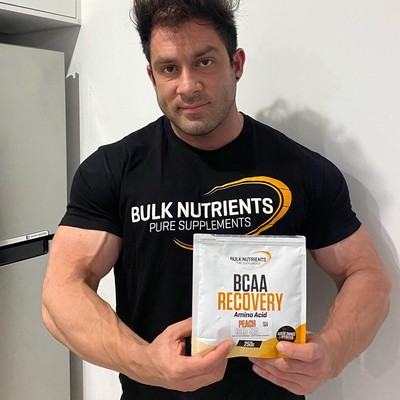Our Most Frequently Asked Questions About Carbohydrates

What are the different types of carbohydrates?
There are two types of carbohydrates - simple, and complex. Simple carbs are typically sweet tasting and are found in things like fruit, juice, and refined sugar. Complex carbs typically taste more like starch, found in things like grains, legumes and starchy vegetables.
Additionally, there are three main types of carbohydrates that each play a different role in the body.
- Fibre is a complex carbohydrate that plays a critical role in a healthy digestive system. Fibre comes in two forms, soluble and insoluble, meaning it either dissolves easily, or not.
- Starch is another form of complex carbohydrate and is the main dietary source of carbohydrates for the body. Starch is found in common stable foods like beans, rice, wheat, and potatoes and is slowly digested by the body to produce glucose for energy.
- Sugar is a simple form of carbohydrate and unlike fibre and starch, sugar is broken down quickly by the body into glucose to be used as energy. Sugar is commonly found in fruits and vegetables and is added to confectionery such as lollies and soft drinks.
Why should I take additional carbohydrates?
Carbohydrates are the body’s main source of energy and make up an important part of a balanced diet. If you’re looking to gain muscle or looking for an effective way to refuel after a long workout then supplementing with additional carbohydrates is a great option.
Carbohydrate supplements are a convenient and cheap way to increase both your daily intake of carbohydrates and calories.

Which carbohydrate supplement should I use?
The question of which carbohydrate sources are best for you depends on a few factors.
Most carbohydrates in powder form are absorbed very quickly. Consumers are often looking for a quick energy source prior to training, a source that will rapidly restore blood glucose levels (in the case of post training) and generate a hormonal response that increases the rate the body transports blood glucose into the muscles cells. This process has been reported to be a critical component for muscle growth through increased protein synthesis.
Many people will take carbohydrates with protein, especially when 'bulking' or trying to increase muscle mass. When attempting to gain weight, it is typical for people to have carbohydrate to protein at a 1-1 or even 2-1 ratio (for example 60g of Carbs to 30g of Protein).
Please note: Ensure you take an adequate amount of fluid when consuming carbohydrate supplements as FSANZ warns that high carbohydrate supplements may cause gastrointestinal upset if not consumed according to directions.
Why use Maltodextrin as a carb source over Dextrose Monohydrate?
Maltodextrin is a complex carbohydrate (as it is multi chained with a complex structure), however due to its weak bonds it is rapidly absorbed by the body, in a very similar period to Dextrose.
Maltodextrin generates slightly less of a hormonal response in the bloodstream but will still raise blood glucose levels significantly.
Maltodextrin is slightly sweet (much less sweet than Dextrose) and is the best choice for those who want a carbohydrate which has a great texture, mixes well, and does not affect the taste of their protein.
There has been some research into the combination of using Maltodextrin along with Dextrose. It is reported that the combination of these is ideal for rapid absorption, thanks to their structure. Due to this, many people prefer to take a combination of Maltodextrin and Dextrose at a ratio of 50:50.
Bulk Nutrients stocks Carb+, a fast-acting carbohydrate powder to help give you an energy spike during your workout. It also contains Isomaltulose for a more sustained, longer lasting release of energy.

What is the best carbohydrate for bodybuilders?
Dextrose Monohydrate is generally the most popular carbohydrate used by bodybuilders, and talked about as the best carbohydrate for bodybuilding. It is a monosaccharide, which means it is a single chained carbohydrate, which results in rapid absorption.
Dextrose is quite sweet (80% as sweet as sugar) so is great for flavouring unflavoured proteins or those who have a sweet tooth.
Dextrose mixes very well and has a great texture, it is generally said to improve the mixability and taste of proteins so works very well when blended with proteins. Dextrose is likely the best carbohydrate for those looking for a rapid spike in blood glucose levels, which also means it should be avoided for those concerned about these effects (and the possible weight gain due to it).

What is the most versatile carbohydrate?
Fine Powdered Oats is perhaps the most versatile and suitable carbohydrate for widespread use. Fine Powdered Oats have all the nutritional benefits of oats, being high in vitamins, minerals, and fibre as well as protein.
Oats are considered complex carbohydrates; however, our fine oat powder is highly refined so although the sugar content is extremely low, these would still be considered a rapidly absorbed carbohydrate with a high GI (though not as high as Dextrose or Maltodextrin).
Fine Powdered Oats mix well and have minimal texture, so they are great for adding to whey protein when making a bulking shake.
If your nutritional intake is lacking, then Fine Powdered Oats would be the best carbohydrate to use. They can be used for energy source pre-training as well as for post workout to restore glycogen levels. They are also great added to pancakes and other baking!
When is the best time to take carbohydrates?
The best time to take carbohydrates is immediately after a workout with your post-workout shake. However, carbohydrates can be taken at any time of the day. If you're doing prolonged intensive exercise like ultra-marathons, carbohydrates can be beneficial during in order to fuel your energy levels.
How do I take carbohydrates?
Carbohydrates are a fantastic addition to shakes and smoothies and are a straightforward way to add extra carbohydrates into your diet. They can also be added in to water and are found as ingredients in sports drinks to help fuel you during your workout.

Related Blogs

Why Do Carbohydrates Make Me Tired?
Posted by Dayne Hudson
Estimated reading time: 6 minutes

When Is the Best Time to Eat Carbohydrates?
Posted by Dayne Hudson
Estimated reading time: 4 minutes

Everything You Need to Know About Carb+
Posted by Bulk Nutrients
Estimated reading time: 8 minutes





























